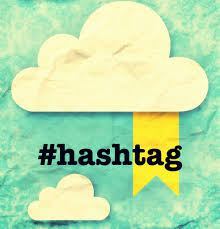Phillip T. Stephens's Blog: Wind Eggs, page 14
April 13, 2017
5 Things You Need to Know as an Indie Author
If you’re an indie writer with dreams of success, and you don’t already have a long list of readers who bought your published books, I have bad news. The odds are against you. With a little effort you can publish your book and even market, but sell it? That’s a different story.
Beware, however, there are a lot of people out there on the Internet who will find your name and sell you sure-fire success. What you are most likely to buy, however, is their success.
[image error]
Image courtesy of Black Phoenix Alchemy Lab.
Reblogged from Dominic Carillo at Author’s Publish Magazine.


April 12, 2017
How to Use Twitter Hashtags to Gain Followers and Build Your Audience
There’s so much more to hashtags than Tweeting them. They can be mini-search engines to help promote your books. Cathleen Townsend explains:
 One of Twitter’s advantages compared to other forms of social media is that it’s possible to build a network quickly. But if you don’t want a network with nothing but bots and online marketers, you’ll need to find some real people, hopefully ones who share some of your interests. Hashtags can help.
One of Twitter’s advantages compared to other forms of social media is that it’s possible to build a network quickly. But if you don’t want a network with nothing but bots and online marketers, you’ll need to find some real people, hopefully ones who share some of your interests. Hashtags can help.
Hashtags are a word or phrase that come after the pound sign (#) and are included in your tweet. For example:
Come read my #blogbattle winner, Oak: http://wp.me/s6jPnk-oak. #shortstory, #flashfiction, #amwritingfantasy
I’ve never used four hashtags in a tweet before, but the story title was short, and one of the hashtags worked into the message. Generally, I restrict my hastags to only one or two.
Whenever you use a hashtag, you aren’t just identifying with a group, like wearing the jersey for your favorite team. Hashtags do more than that.
On the top right hand side of the menu…
View original post 481 more words


April 11, 2017
5 Rules For Chapter One Of Your Book
Dan Altalore is running a writing contest this month. To help writers get started, he offers five guidelines for writing the first chapter.
Hey, some of these tips might help with that WRITING CONTEST you are thinking about entering!
 WIN your share of $400 in prizes AND get valuable feedback. ClickHEREto learn more!
WIN your share of $400 in prizes AND get valuable feedback. ClickHEREto learn more!
1. Start the story as late as possible
2. Have a grabber opening
3. Make the reader care, usually via the MC
4. What are the stakes? What can be gained or lost?
5. End with a cliffhanger so we go to chapter 2
Need more info? Let’s read on then, shall we?
(Learn more about writing better stories HERE)
Start the story as late as possible
Most authors bury the really interesting stuff a few paragraphs in, or worse, in chapter two or three. What’s the first interesting thing that happens in your story? Start there.
(Learn about tightening your story HERE)
.
Have a grabber opening
 Holy cow, am I intrigued by this…
Holy cow, am I intrigued by this…
View original post 444 more words


April 10, 2017
FREE Marketing Magazine – Issue 11
Claire Plaisted and Plaisted Press offer a number of opportunities for indie writers who need help publishing and releasing their book. Whenever they release a new issue of Indie Publishing News I pass the link to you. Issue 11 interviews at least a half dozen indie authors, provides lots of reviews and poetry for Poetry Month.
Indie Publishing News Magazine – Issue 11 is OUT NOW. Follow the link or contact me for a copy. PLEASE SHARE WITH EVERYONE – SHARING IS CARING



April 7, 2017
Using Ideas to Start A Story by Alicia Rasley
I know, I know. Stories should feature strong characters with a vivid plot. That’s what I heard in every fiction workshop. But stories were originally told to convey ideas, and every novel I wrote (except Cigerets) developed from an idea. The characters and plot came later.
Raising Hell was inspired by the realization that hell would really be just like working your day job. Forever. The Worst Noel from the idea that every plan creates unintended consequences (especially if you ask the wrong person to do the job).
Seeing Jesus was meant to be a non-fiction book discussing how narrative and metaphoric thinking shapes our beliefs. An agent suggested the novel (then passed on it).
Alicia Rasley explains why you don’t have to be a deep thinker to write about ideas.
And I found another excuse to plug my books.

Thanks, Wendy, for inviting me to talk today about “idea” as a way to start a story. Some stories, especially those classified as “speculative fiction,” start not with anything concrete like character or setting, but with an idea to be explored.
As science fiction writer Orson Scott Card explains, “Idea stories are about the process of seeking and discovering new information through the eyes of characters who are driven to make the discoveries.”
That’s really the appeal of an idea story. No matter what it turns out to be, it starts as an intellectual puzzle. In the spirit of that sort of intellectual mission, let’s consider some ways an idea can start a story.
Questions. For example, many mysteries start with a scene that presents a question, one of the oldest questions of all, “Whodunnit?” But most authors add some additional complication, like, what could kill a man alone in…
View original post 886 more words
 [image error]
[image error]
that other night when
Sometimes you can mix metaphors….
 Fragmentarily/ Meta-Phor(e) /Play
Fragmentarily/ Meta-Phor(e) /Play
Michael Dickel
dark crunches down
behind some planet
waiting to jump water
puddles seize land masses
swallow rivers flatten
mountains freeze lava
until we surrender willingly
to its subversive seduction
embrace folds contours
planes of existence
dimensions of imagination
suppressed memories
and skip over
an impossible sea
to an unknown continent
over remote tributaries and
beyond shadow peaks
until we burn with cold
[image error] that other night when
Digital art
©2017 Michael Dickel


Dan Alatorre’s WORD WEAVER Writing Contest – let the games begin!
I know you love contests. Admit it. Deep down inside you know you’re better than the rest. Dan Alatorre has announced with lots of great prizes.
The best prizes? Not the $200 design package and value set, but a complete set of my novels in paperback ($50 value), and another complete set in Kindle format (worth much less).
The catch? A 3000 word max story related in some way to travel. It’s probably already written and on your hard drive, Load it up and polish. Get to work.

Announcing the Word Weaver Writing Contest!
Enter your amazing piece of writing! We have over $400 of valuable prize packages!
YOU will have the month of April to enter an amazing piece of your own writing to our contest.
Here’s what you do:
Uh, enter a piece of your writing in the contest. I thought that was obvious.
Here’s what you GET:
 The FIRST PLACE Winner will receive THIS prize package valued at over $200:
The FIRST PLACE Winner will receive THIS prize package valued at over $200:

$125 Professional BOOK COVER designed by Select-O-Grafix, LLC (www.selectografix.com)
$50 Amazon GIFT CARD, compliments of ME
PUBLICATION of their winning piece on this website
Signed copies of a multi-book package from several published authors who graciously donated their books to our contest (see list below).
A GUEST BLOG POST or AUTHOR PROFILE to appear on this site (that’s priceless, really)
a video interview with me, should they so choose, also to appear on this site**
View original post 1,652 more words


April 6, 2017
As you know, Bob, most exposition sucks
Bad exposition is often called, “As you know, Bob.” It’s that irritating need to have one character fill the readers in on what they don’t know, need to know or not. Usually, we don’t need to know.
Usually, we don’t need to know.
Writing exposition can be a challenge. How much to include, how to convey it to our readers. It’s also a sure-fire sign to the reader that a writer is novice or professional. Novice writers love to bombard the reader with exposition and debate in dialogue. I do it too. I just cut ninety percent of it from my finished manuscript. (Unless I want the reader to realize the speaker is an ass.)
[image error]
Okay, I added the snarky comment at the end. But you get the point. (Slideshare.net)
Lindsay, a South African writer, shares her writing tips on good exposition.


April 1, 2017
Is this YOUR Brain?
Why is 2am the best time to write? You need to read for yourself.
 Chris The Story Reading Ape's Blog
Chris The Story Reading Ape's Blog



March 31, 2017
Writer in Residence – Proto-Indo-Europeans by Paul Andruss
When I attended grad school, the Indo-European origins of language was still accepted as a matter of faith. This was only thirty-five years ago. To question the Indo-European origins was like suggesting to Baptists that Jesus didn’t rise from dead, might even not have existed. None of it gelled with the archeological discoveries of the origins of humanity in Africa, or how the first written languages developed in the fertile crescent, but no one’s been able to make quantum mechanics work with relativity. (Atoms and gravity don’t work well together).
Paul Andruss reviews archeological findings and the origins of modern linguistics.
But I write murder mysteries, you say. Why should I care? Because the more widely read we are, the more detail we have at our disposal when our stories need them.
 Smorgasbord - Variety is the spice of life
Smorgasbord - Variety is the spice of life
In his brand new post for Smorgasbord, Paul Andruss explores some of the assumptions made about the development of our individual languages from a common root many thousands of years ago. He also addresses the question of whether languages were spread by conquerors sweeping across continents or farmers gently moving across fertile plains and establishing communities that fed and watered the nomadic tribes who came after them. I am sure that Paul would love to hear your views and answer your questions.
Proto-Indo-Europeans by Paul Andruss
Indo-European migration route?
(http://www.proto-germanic.com/2011/0…c-caspian.html)
In Victorian times, philologists noted similarities in the words of many languages stretching across Eurasia deep into India. Languages separated by thousands of miles and thousands of years, such as ancient Irish, Spanish, and Russian; ancient Greek and Latin; ancient Sanskrit from the Indian Vedas and modern Hindi and Punjabi. They proposed an original language called Proto-Indo-European from which all…
View original post 1,414 more words


Wind Eggs
As much as I admire Plato I think the wind eggs exploded in his face and that art and literature have more to tell us, because of their emotional content, than the dry desert winds of philosophy alone. ...more
- Phillip T. Stephens's profile
- 31 followers








